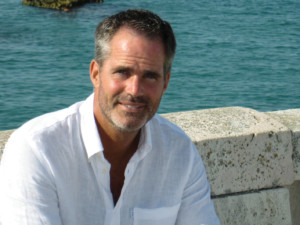
Thomas Williams, an American, formerly one fo the leading theologians of the Legionaries of Christ, now laicized.
One of the most prominent Legionaries during the past two decades was an American priest, Father Thomas Williams, the dean of the theology faculty at the Legion’s Roman university. Quite close to the founder, Williams was also in many ways “the public face of the Legion,” appearing on many major television networks. Last year, however, it was revealed that Williams had fathered a son, and had hidden the fact for 10 years. Williams, after a period of discernment, left the Legion, was laicized, and, on December 7, was married. He knew the Legion well, so we sought his comments on the Legion today.
You were a high-ranking Legionary. You knew the founder. You have now left the Legion but remain able to analyze what happened and why. Are you watching as the Legion you once helped to lead seeks to reform and continue? If so, what are the key things you see happening?
Thomas Williams: I have been looking forward to this General Chapter for quite some time and I am watching it closely. I have been in close communication with a number of Legionary priests and have been able to stay abreast of what has been going on.
The fact that the priests began this important meeting with eight days of intense prayer should not be dismissed as a mere formality. These days of communion with God and constant petition for His grace and wisdom are just as important, if not more, than the days of reflection, discussion and debate that have followed.
The situation of the Legion and its future cannot possibly be understood without faith. This is not a mere company audit, and the remedy for any problems that exist must be found in greater union with God and closer cooperation with His grace, and not just in a better business plan.
My overall feeling is of hope, and I mean that in the deepest, theological sense. I hope in God and what God can do. I am not convinced that He is finished here. I know almost all of these men and the vast majority are prayerful, sincere human beings who are honestly seeking the good of the Church. They have suffered a lot in the last few years and are giving their lives despite the personal cost. They still have a lot to give. I have deep admiration for their faithfulness in the midst of what can only be described as a terrible ordeal.
Obviously, in a group this large there is a diversity of personalities and perspectives, which also means that there is plenty of disagreement as well. This is surely a good thing. I think where the consensus lies is in a desire for the Legion to be whatever God wants it to be. All of the men participating felt attracted to the Legion at some point and experienced a call to form part of it. There was good in the Legion that drew them to it and also drew many other people to hope that God was doing something important here. The sins of the founder, as horrific as they were, do not negate that. I think if we are honest, those of us who have left the Legion must recognize the good we received while we were a part of it. It would be dishonest and unjust to look back and only see negative things, when in reality we lived and received many positive things as well, that in part made us the people we are today.
I think that the Legionary priests participating in the General Chapter now realize, almost to a man, that deep reform is needed. I have talked to a number who have told me that daily they pray for openness to the Holy Spirit so that they do not remain attached to anything that should be changed.
At the same time, the majority wishes to avoid the recklessness of changing what is good about the Legion just for the sake of change, or because of outside pressure.
What will come out of this meeting? Will it be “enough”?
Williams: It seems clear that much will come out of these meetings, and surely, along with what we can all predict, surprising things will come out as well that no one can foresee at this point. Whether it will be “enough” depends to a large extent on what the expectations are.
For some people, no change will ever be enough, since they are convinced that the Legion should be extinguished.
For others, who have already outlined their master plan for the Legion, their satisfaction will depend on how closely the outcome of the discussions matches their preconceived ideas of what the reform should look like.
There will be no overnight change in the Legion because of this Chapter. There will be a newly-elected leadership; there will be a substantially revised constitution; there will be a more clearly-articulated mission and spirituality.
But much of the change that is needed is not legislative and cannot simply be effected by decree. It is a change in mentality and in patterns of behavior. Fortunately, there are signs that the deeper change that is needed is already coming about.
I think that we can draw important lessons from indications that Church leaders have given and from the way that the reform has been unfolding in the last three years. It has been consoling to me to see how common threads have been emerging around which the reform has been taking shape. I cannot help but see the action of the Holy Spirit in these changes. They include the following:
• Regarding the exercise of authority, there has been a concerted effort toward a greater practice of subsidiarity, whereby local superiors exercise real responsibility for their communities and apostolates. In the past, there was a tendency for superiors to act as middlemen, who would send even simple requests up the authority chain to be decided at the highest levels, and then would execute whatever decision was handed back to them. Now the practice is much more for superiors to truly exercise the authority given them. This demands personal accountability, creativity and dialogue.
• Speaking of dialogue, there has also been a discernible move toward a different form of exercising authority, which looks to involve both superiors and subjects in the decision-making process. This is not meant to devoid the practice of religious obedience of its sacrificial quality, but to help all the members of the congregation to participate actively in discerning God’s will. They are encouraged to voice their opinions, even when these may disagree with the superior’s. This represents a real change from the way authority was seen in decades past.
• Religious life is necessarily structured, but many have felt that life in the Legion was overly regimented and governed by such a vast network of norms that in some cases it took the place of the need to think through one’s personal situation and act responsibly and virtuously. The past three years have seen a shift toward principled behavior and away from overly detailed norms. Many have seen this as a path toward greater spiritual maturity and the responsible exercise of freedom.
• In the past, there was great emphasis in the Legion on numerical evaluation of results, described as “fruits.” There has been a movement away from that based on indications received from the Church and a growing awareness among the Legionaries that efficiency is not really a Gospel category. Every single person counts. Time spent listening to a human being who needs to talk, consoling the sorrowing, accompanying the lonely and countless other selfless acts may not produce quantifiable results, but are a clear continuation of the mission of Jesus Himself. Moreover, through the practice of spiritual and corporal works of mercy, the Legionaries can effectively make reparation for the sins of the founder, and all of our sins.
• Access to information has been another area of significant change. I have known many members of other religious orders who have struggled with this as well, since up to quite recently most religious orders had some sort of measures in place to filter what media their members could access. Now Legionaries have unfiltered access to written correspondence from their families, are present on Facebook and other social media, and have virtually limitless access to the news media. This doesn’t make them better religious, but it does allow them a more fully informed view of the world and the chance to make good, virtuous decisions.
• There has also been a profound shift in the relationships among the Legionaries themselves. In the past, great emphasis was placed on “universal charity,” which basically meant that everyone should be treated the same and “particular friendships” were discouraged. A new appreciation for the value of human friendship has emerged in the past few years, and a greater understanding of how this friendship in religious life can help the members to reach their full potential as human beings.
Even though this reform has been in progress for several years, much more time will be needed to bring about a full transformation of the Legion’s way of thinking and acting. It seems to me that there is much good will in this endeavor, and enough change has already occurred to give us hope that the reform will continue to unfold along these good lines.
It is said that “the corruption of the best is the worst.” The fall of the founder of the Legion has blackened the image of the Legion and of the Church in a dramatic way. Is reform possible? Can the Legion be reformed and enabled to continue?
Williams: The situation of the Legion’s founder is among the most devastating blows imaginable to a religious order. His actions have hurt countless souls, and the Church herself. That is what sin—all of our sin—does. It is beyond horrible. I understand that many people would simply like the Legion to disappear. Because of the actions of the founder, they feel that the Legion is an embarrassment to the Church, an ugly blemish that draws people’s attention away from the many outstanding works in the Church. Let it simply disappear and we can pretend it never happened. They also believe that the Legion cannot be a work of God if the founder was capable of such actions.
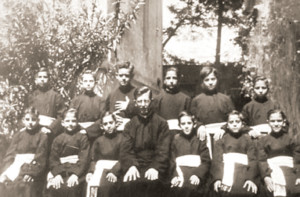
Father Marcial Maciel Degollado as a young seminarian in Januray 1941, in Mexico City, with twelve of his first followers gathered around him.
As attractive as this logic is, I am not certain that this is what God wants. And so far, it has seemed clear that the Church’s leadership has wished the Legion to continue. Pope Benedict has been criticized for this, and the papal delegate, Cardinal De Paolis, has often been judged harshly as well. He has accompanied the Legion during this period and has expressed his personal satisfaction with the reforms that have taken place.
The simple fact is that no matter how much reform is undertaken, no one can undo the sins of the founder. That history is written and is in God’s hands. The Legion will always bear that stain. No amount of reform can ever change the past. The question really is whether God intended the Legion to exist, despite the vile actions of the founder, and whether He wishes it to continue. I do not understand how sin and grace coexist and how God works good through the lives of sinful humanity, but He does.
I have seen that in my own life and I have seen that in the lives of countless other people. All of us Christians say that we are “sinners,” but I think that many deep inside make a distinction between “big sinners” and “us little sinners.”
I am not sure that God makes the same distinctions we do.
It is remarkable to me that young men continue to join the Legion even now, and that many continue to be ordained priests, despite their full knowledge of the immoral actions of the founder.
This phenomenon can be looked at in different ways. It could be brainwashing. It could be naïveté. It could be stupidity. But it seems presumptuous to categorically exclude the possibility that God wants the Legion to continue and is still calling young men to embrace its spirituality and apostolate.
In December, veteran American journalist John Allen interviewed four newly-ordained Legionary priests to try to understand why in the world they would be taking this step. Part of the reason, they said, was that there has already been much good change, in the form of “more honest internal conversation, less control from on high, and a more realistic understanding of human weakness.” They also observed that being a Legionary today is a constant invitation to humility, they say, because there’s no longer any “aura” or prestige attached to membership.
I think it helps to remember that up till 2006 the Legion was regarded with nearly universal appreciation and esteem in the Church.
Shouldn’t the men who compose this order be given the chance to prove themselves? Shouldn’t a tiny bit of goodwill be shown to these men who are giving their lives to the Church and only wish to serve her? Change whatever needs to be changed. Ruthlessly root out whatever vestiges of malfeasance can be found. But why insist on destroying a work that has done such good for the Church and for countless souls?
A more prudent and evangelical attitude might be that described by other Legion-watchers as the “Gamaliel approach.”
Gamaliel was a member of the Jewish Sanhedrin during the days of the early Church. When other members of that governing body insisted on stamping out the nascent Christian Church by executing Peter and the other apostles, Gamaliel recommended another course. He suggested that the apostles be allowed to go free, noting that many false prophets arise but their works do not endure. They die on their own. And so, he said, “if this plan or this undertaking is of human origin, it will fail; but if it is of God, you will not be able to overthrow them—in that case you may even be found fighting against God!” (Acts 5:38-39) Why not allow the Legion — which to any impartial observer has borne abundant good fruit for the Church — to live out its reform with the support and goodwill of all who profess to be disciples of Jesus?
With God all things are possible. I think that if the ubiquitous analysis and criticism of the Legion were accompanied by just as much prayer, we would all be in a better position to discern God’s action.
What perils do you still see for the Legion? How can these be faced and overcome?
Williams: St. Paul reminds us in his Letter to the Ephesians that “our struggle is not against enemies of blood and flesh, but against the rulers, against the authorities, against the cosmic powers of this present darkness, against the spiritual forces of evil in the heavenly places.”
Each of us is loved by God and strengthened by His grace, but we are also pursued by evil and have to struggle to choose light over darkness. That is something each of us faces as an individual and that institutions have to face as well.
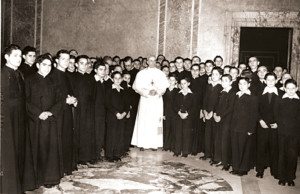
In 1946, Pope Pio XII granted an audience to Maciel and some of his early followers.
Most of us who knew the founder were oblivious to his misdeeds. He was very good at keeping things separate, and he always seemed to be beyond reproach. Maybe we should have noticed things, but we didn’t. Even the few priests who now have come forward saying that they noted irregularities in his behavior are speaking with the benefit of hindsight. It is easy to look back and say, “Oh, so that’s why he took that trip,” or “That’s what he needed the money for,” but at the time, we supposed that he was engaged in good and wholesome activities.
I think that the greatest peril for the Legion is to allow any merely human or earthly pursuit to obscure its essentially spiritual mission. It cannot hold onto ways of thinking or acting that do not fully correspond to the teachings of Jesus, whether in the internal life of the congregation or in the apostolate. This demands deep and constant self-examination and an absolute willingness to root out anything that is not in conformity with the Gospel. Again, I think that this attitude is present in the vast majority of Legionaries now, and needs to be encouraged and supported.
Did anyone ask your advice? If they had, would you have given it? What would you have said?
Williams: I have had many conversations with Legionary priests about where the Legion should be going and what is needed for an authentic reform. There has been a healthy atmosphere of open discussion and self-criticism and a willingness to listen to suggestions from people who wish them well. I am humbled when these men, who are much holier than I am, have approached me for advice.
My own analysis over the past several years has coincided in large part with that of many Legionaries with whom I have been in contact. Many of these are included in the answer I gave earlier regarding specific points of reform. I have also tried to back this up with daily prayer for the success of the General Chapter and continued growth in grace and wisdom of the Legion’s priests and religious.
Since every indication is that the Legion will continue to be a reality in the Church, all of us will have to decide whether we will come together as a family to support and sustain one another, or whether we will sit back and throw stones. The Legionaries themselves are trying to pull together and carry out the reform that the Church has asked of them. The least we can do is wish them well and support them with our prayer.

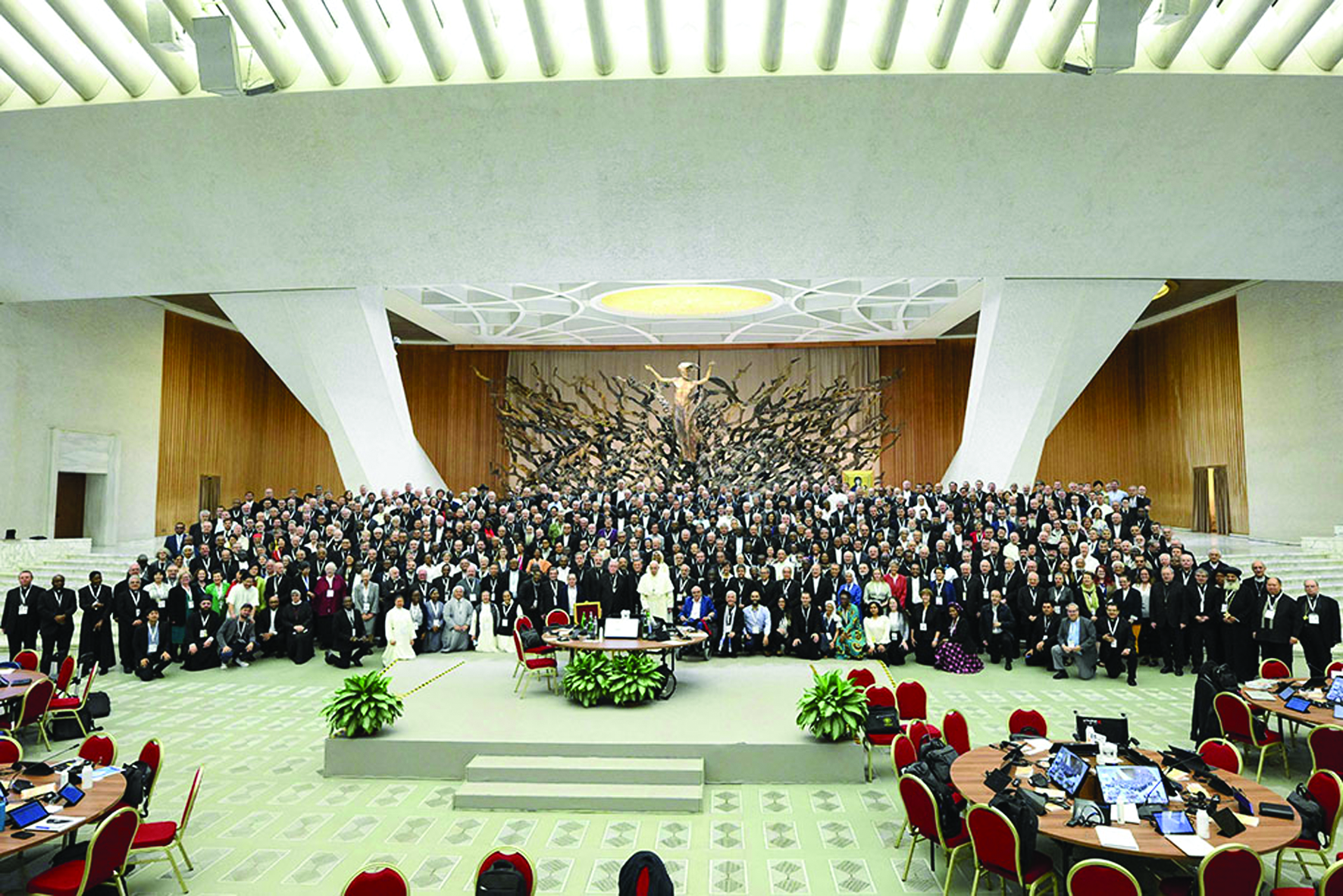
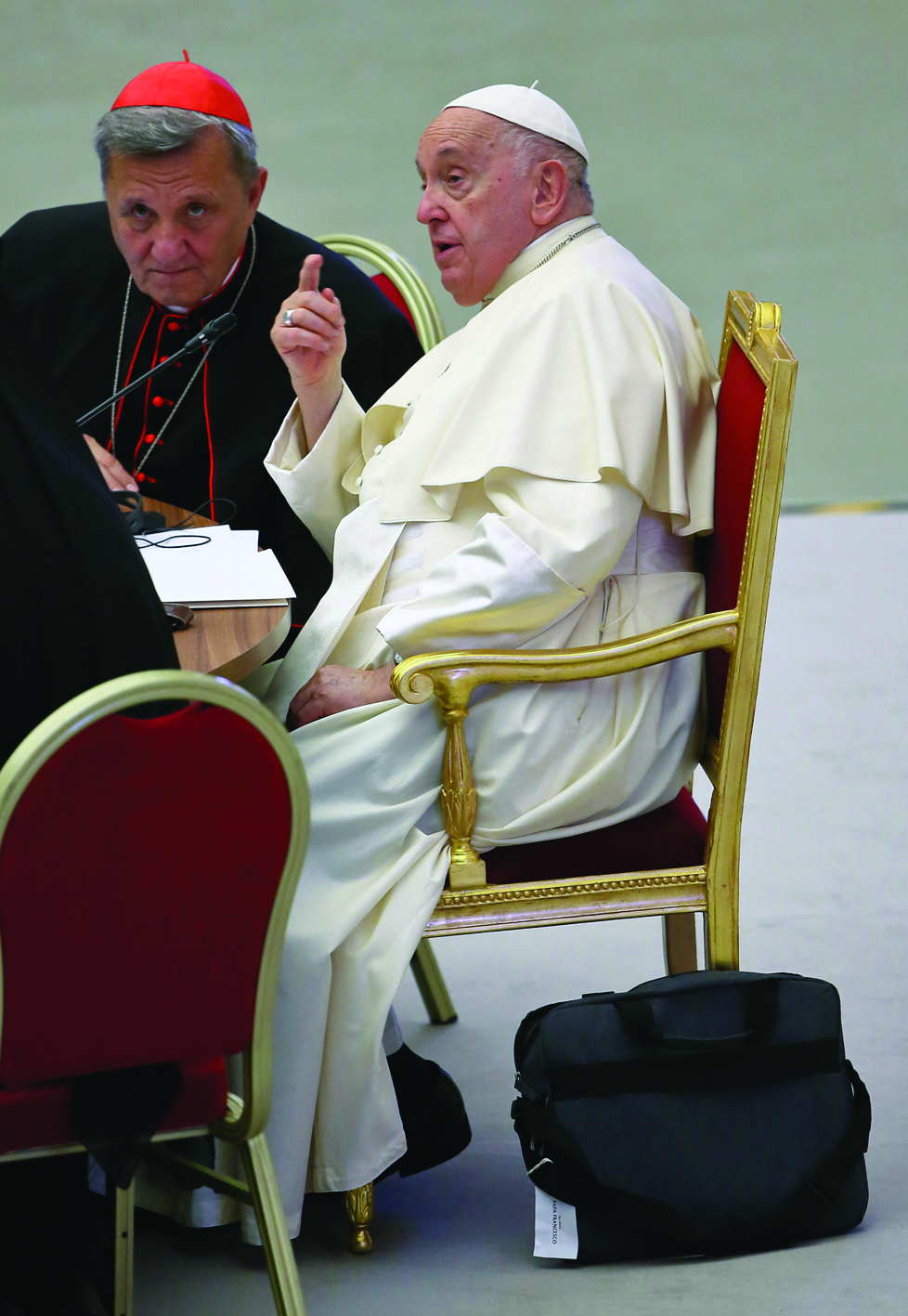
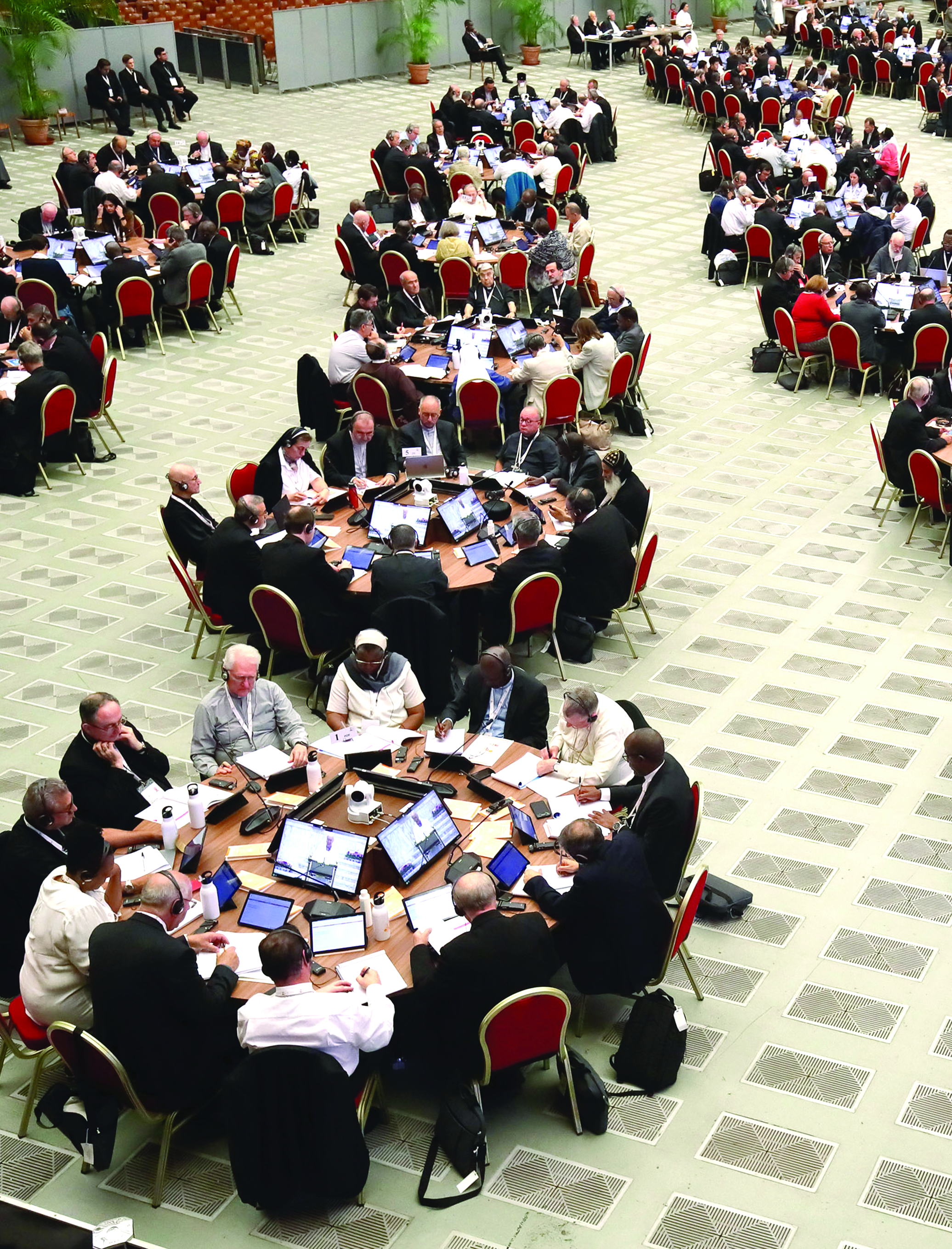
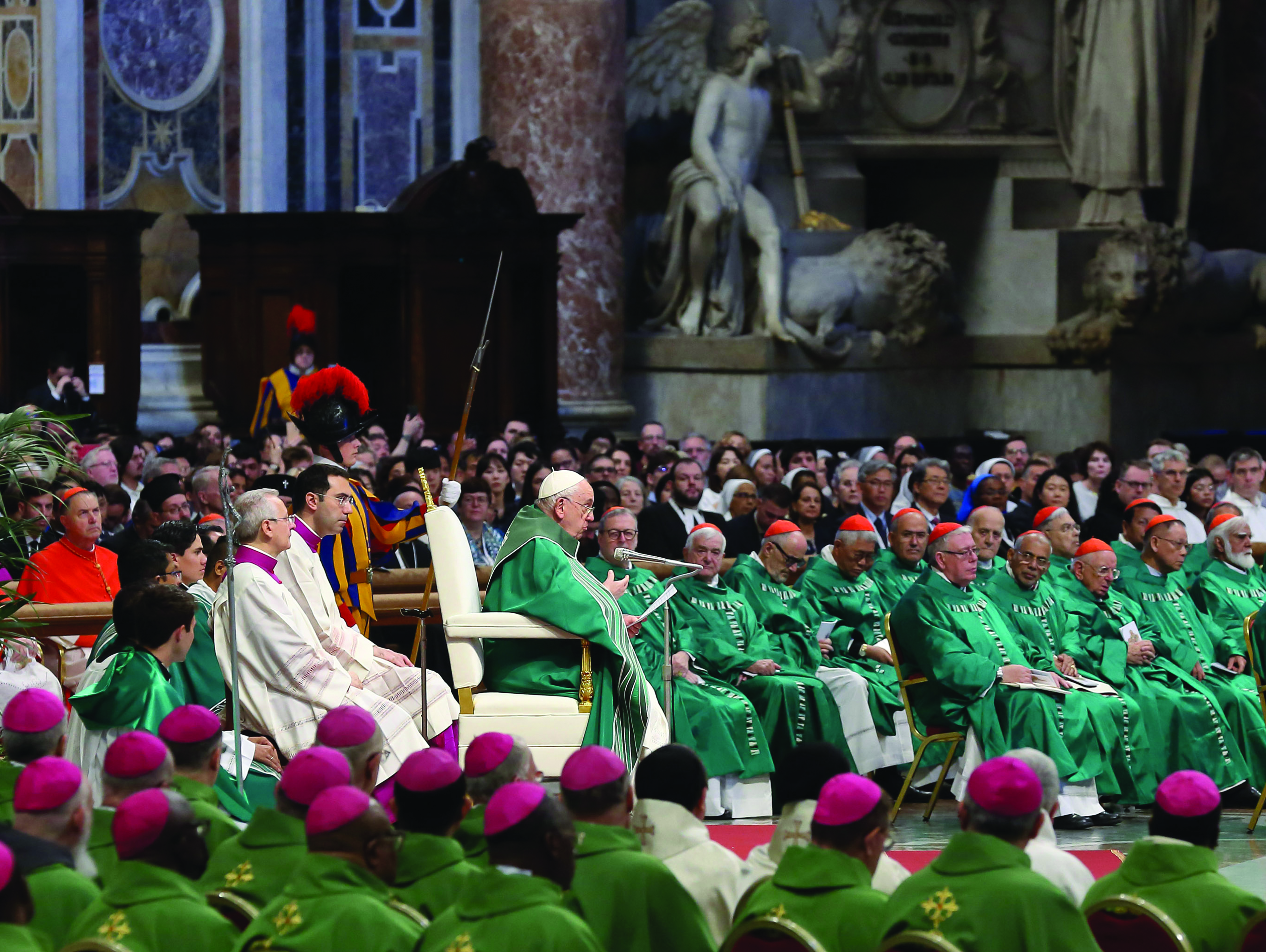
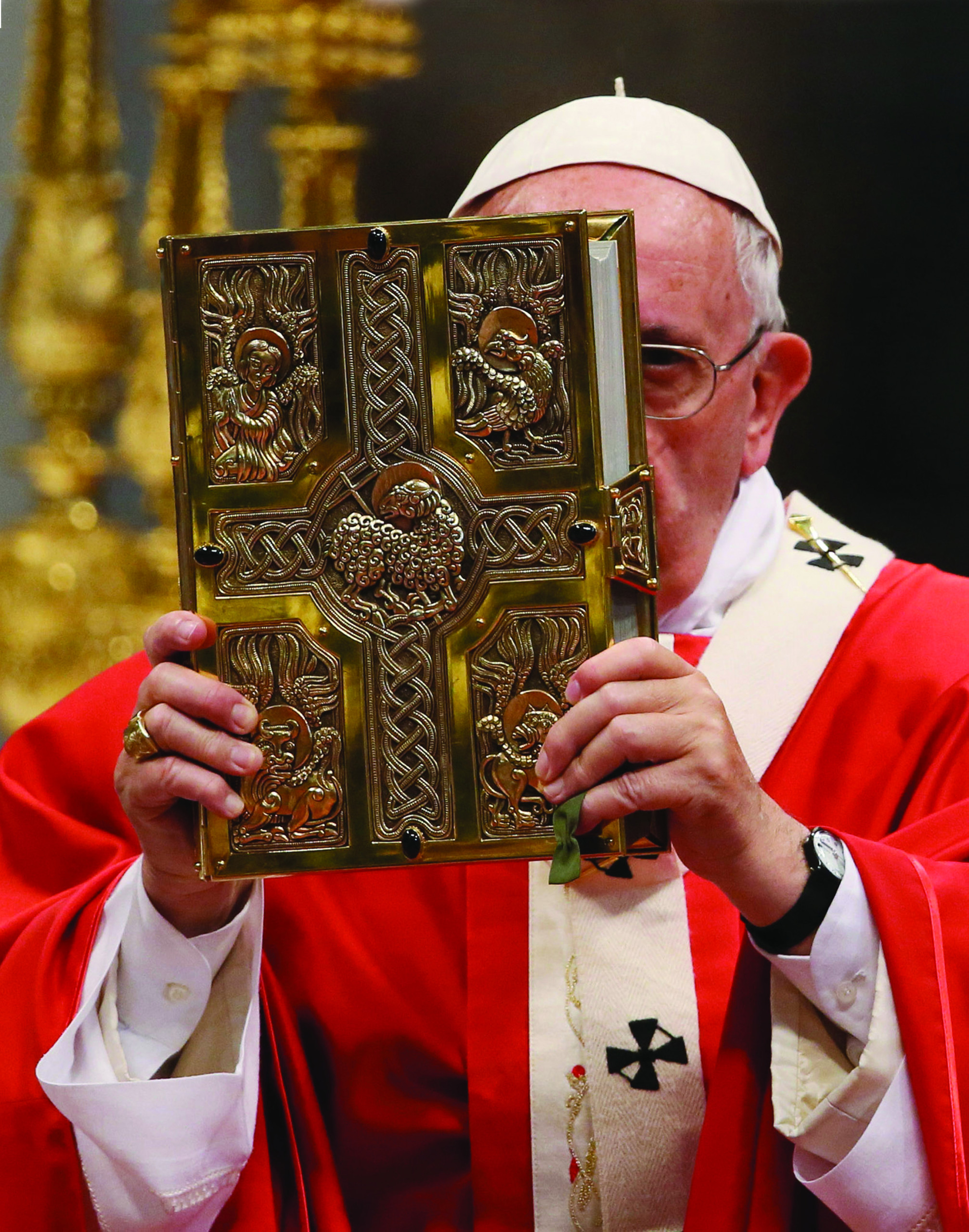
Facebook Comments